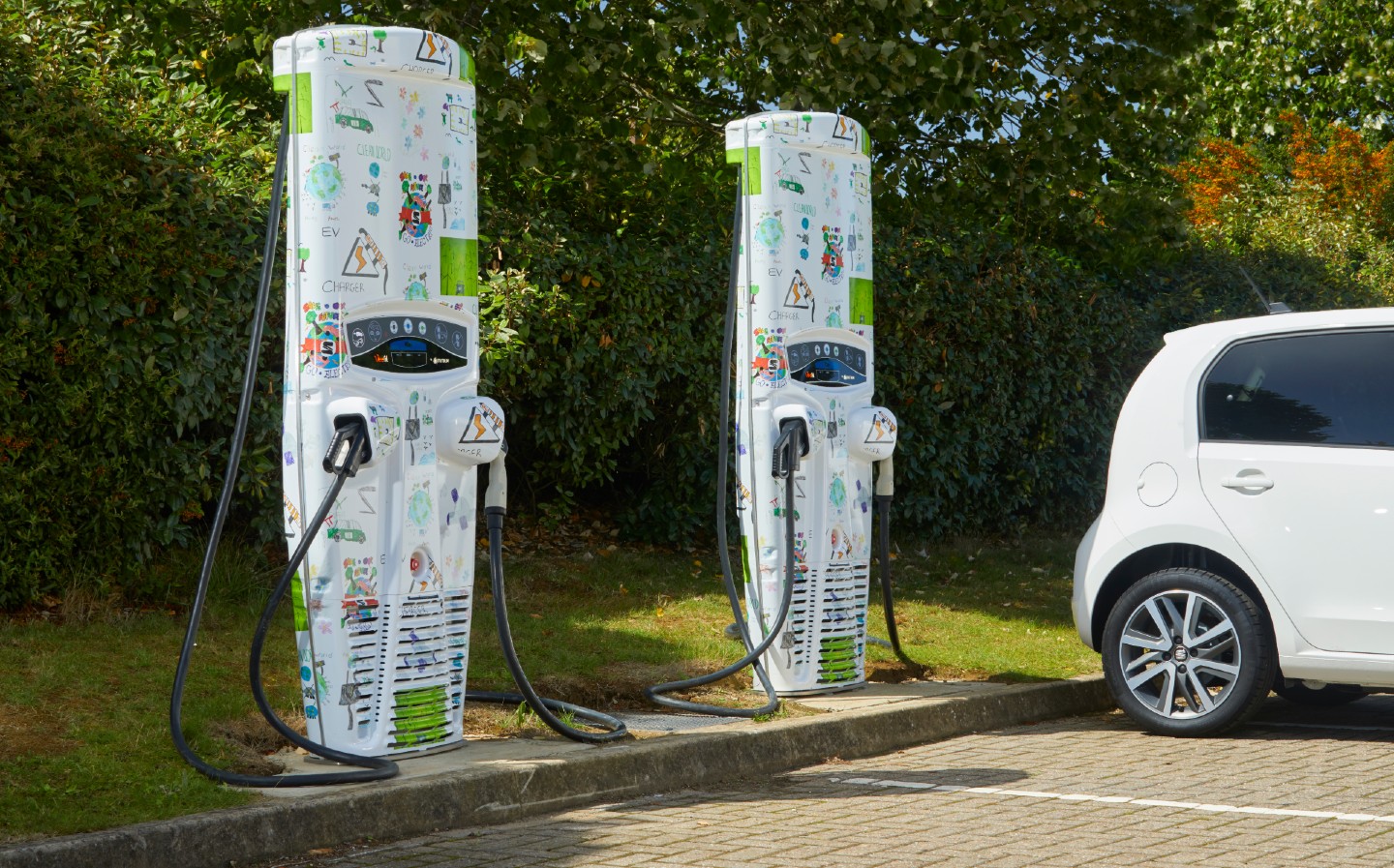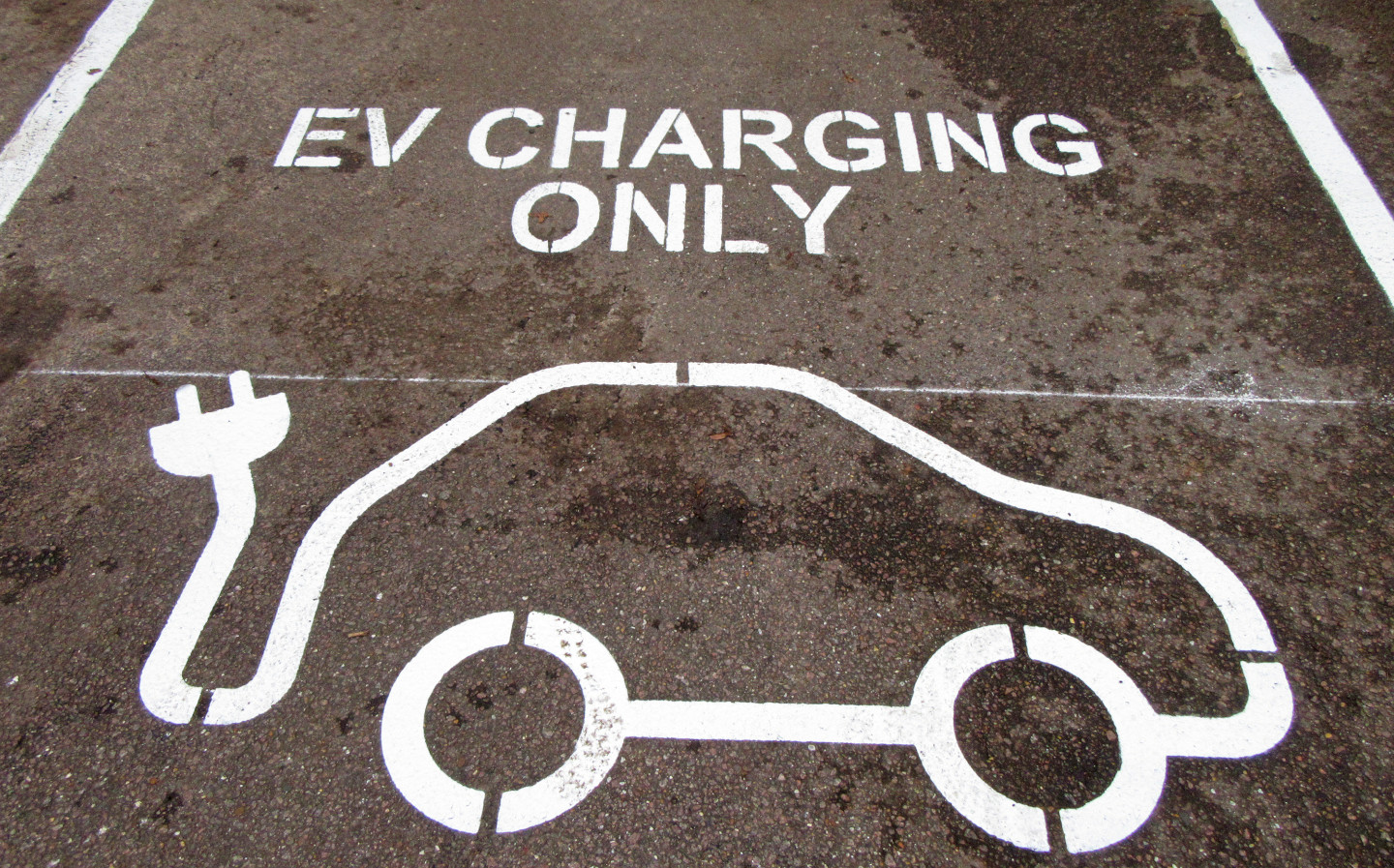Electric car charging points could get design 'as iconic as the postbox'
Department for Transport offers £200,000 design contract
THE UK’s network of electric car charging points could be revamped with a design as iconic as that of classic British red postboxes or telephone boxes.
The Department for Transport’s Office for Zero Emission Vehicles has advertised a £200,000 contract to design an “iconic, functional public electric vehicle charge point” that can act as “a guide for local authorities and companies who wish to use it”.
“As the charge point rollout continues to accelerate, there is potential for this design to become a piece of iconic British street furniture,” the advertisement added.
Former transport minister Sir John Hayes said that he hoped the revamped charging points would become a “design classic”.
“We shouldn’t see this merely as a piece of utility although, of course, it provides a utilitarian purpose,” he said. “We should see it as something that adds to the street furniture around our towns and cities.
“That’s why the design becomes critical, not only so that it’s recognisable but also that it’s something people enjoy seeing.”
The announcement comes less than a year after a survey by Spanish car maker Seat found that a third of the UK’s motorists think that EV chargers are “eyesores”, while nearly half don’t want one installed on their street.
The study, which surveyed 2,000 motorists, found that people would be more open to the idea of having electric vehicle chargers on their street if they were made more attractive. Those living in London and northeast England were the most against the idea of having a charging point near their residence.
Seat attempted to beautify charging points, which are often integrated into lamp posts or resemble tall utilitarian boxes, by adorning them with a mosaic of drawings done by children aged three to 13.

Prime Minister Boris Johnson has made electric cars a keystone of his “Green Industrial Revolution”, which aims to create 250,000 jobs while simultaneously eradicating the UK’s contribution to climate change by 2050. The sale of new petrol and diesel cars will be banned by 2030, with the sale of hybrids to be banned five years later.
The call for charging point designs is expected to take place from August 9 to October 29 this year.
According to ZapMap, there are 41,566 electric connectors in the UK, at more than 15,000 locations. However, the fickle nature of the UK’s network, which can see public electric chargers out of service, is often cited as one of the main barriers in the way of a mass uptake of EVs. ZapMap users can report charging points that are out of action to help other members avoid them, and some networks have live feeds of which units are operational or in use on their own maps.
As of June 2021, battery-electric vehicles make up 7.5% of all new cars purchased in the UK, with plug-in hybrids, which combine limited emission-free driving with the practicality of a petrol engine, accounting for a further 6.4%. These numbers are up from 4.3% and 2.9% respectively last year.
Tweet to @KieranAhuja Follow @KieranAhuja
- After reading that electric charge points are to be revamped with an “iconic” design, you might be interested in reading that Tesla has filed trademarks for roadside restaurants.
- The EU will not achieve its electric car charging targets at the current rate of rollout, an auditor has warned.
- will be offered incentives to charge at off-peak hours.Drivers of electric vehicles





